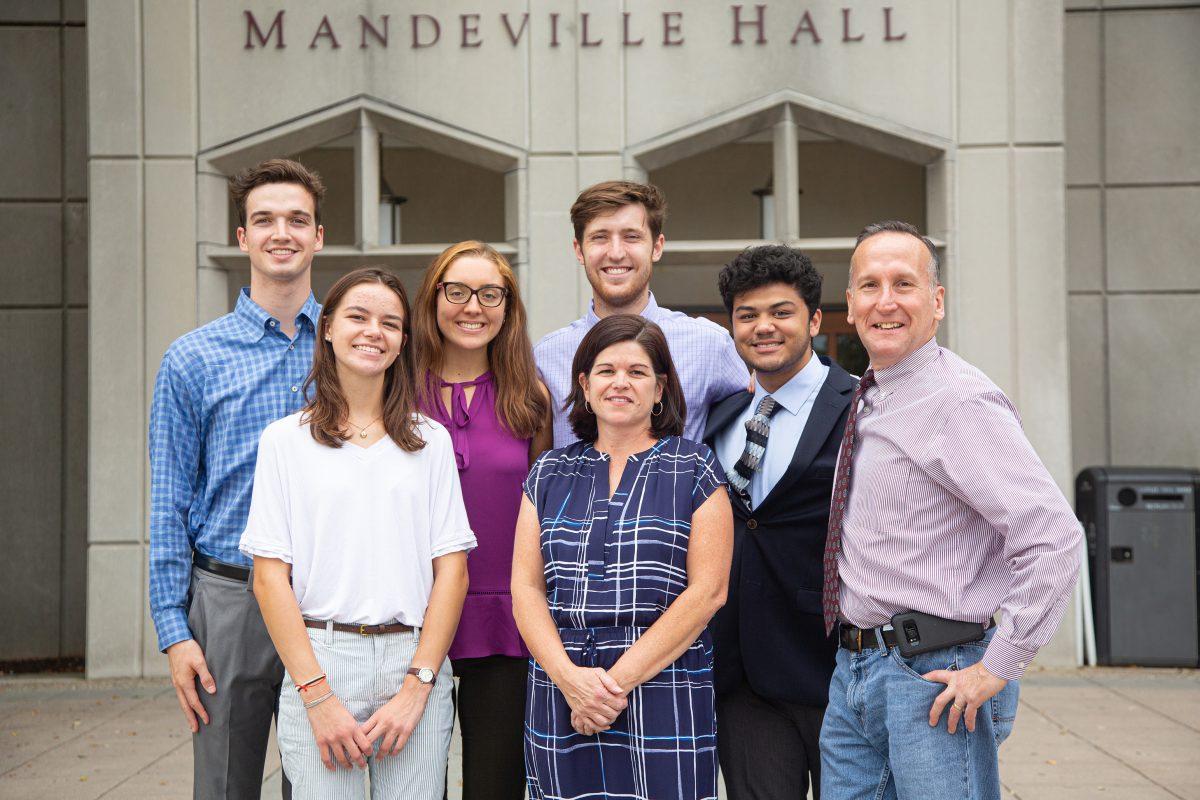Net Impact, a student-run organization that implements sustainable initiatives on campus, has revamped its organizational structure, dividing members into “action teams” in an effort to address members’ different interests and involve as many students as possible.
“I think part of the reason why we are naming these ‘action teams’ is because they are actionable items, and not so much ideas that will be events or something that is stagnant,” said Jeff Hunt ’20, co-president of Net Impact. “They have the ability to be shaped from year to year.”
Based on the passions and sustainability goals shared by attendees at one of their first meetings this fall, Net Impact members broke off into five different action teams: waste management, circular economy and sustainable living, community garden, the Emilia Wojtyla Shelter Bolivia partnership and the Institute of Clinical Bioethics (ICB) partnership.
Lydia Walker ’22, co-president of Net Impact, said she hopes this setup will encourage members to take charge and become enthusiastic about their individual ideas.
“We want to give [members] a plan of action and how to carry out their different initiatives, and then give them the tools to let them go off on their own and to be able to meet individually with their group, and then come back to report back on what they are doing,” Walker explained.
Net Impact is supported by the Pedro Arrupe, S.J. Center for Business Ethics, a resource with a stated goal of providing opportunities for student activities and recognizing student achievement in business ethics. Tim Swift, Ph.D., associate professor of management and advisor to Net Impact, said Net Impact is the Arrupe Center’s primary vehicle for reaching out to and working with students.
“When I think of students, I think of Net Impact,” Swift said. “When I think of the Arrupe Center’s interest in students, I think of Net Impact.”
Hunt, a member of Net Impact since his first year at St. Joe’s, noted that exclusivity in previous leadership teams inevitably led to the lack of input from general members. The new structure is designed to address that, he said.
“I think there’s a little bit of an ironic nature to it being a group for mostly sustainability issues and it not being sustainable from year to year,” Hunt said. “The leaders in some ways polarized what the group was and kind of made it for themselves.”
Those leaders were primarily seniors who left no succession plan for future years. This is a major reason why the club has gone through wavering “peaks and valleys” of activity for over a decade, Swift said.
“[We] latched onto the fact that most of our students are into sustainability, so we need a sustainable model for Net Impact involving students in all four class levels [first-year] through senior, and making sure we have a succession plan,” Swift said.
To propel this model, Net Impact has also restructured its leadership team, electing two sophomores and two seniors for the positions. That way, the second-year leaders can carry on what was started in years to come.
Swift said he was impressed by how seriously younger leaders are taking the responsibility of relaying the succession plan as they came to him with ideas of how to manage the club one, two and three years out.
“They’re visionaries,” Swift said. “They are thinking of things that I didn’t think men and women were capable of at this age. They are thinking five miles ahead instead of one week ahead. I just think they are naturally born leaders to be thinking in such long term.”
Olivia Cardarelli ’22, vice president of internal relations of Net Impact, said she sees a sense of passion, drive and leadership among all the general members that compose the action teams that should not go to waste.
“Our campus is full of leaders,” Carderelli said. “I believe that with them having a passion that they want to work so hard on, if they are immersed in that then they are going to have the motivation to keep that going.”
Club members are currently in contact with the Institute of Clinical Bioethics, which funds the clinical health treatments of undocumented immigrants in the Philadelphia area. Net Impact plans on collecting and analyzing data on these patients.
“My hope, our hope, is that we actually find real, tangible patterns in this data that improve people’s lives,” Swift said. “This is a big deal.”
None of the sustainability initiatives have been implemented on campus or within the partnerships, but they are at a stage where there’s discussion on how the action teams can actually put these ideas into play, Hunt said.
“The goal is that Net Impact will carry on from year to year and also it’s about putting a lot of thoughts and dreams about ethically minded business practices or what sustainability is, as a fad word, into action,” Hunt said.















































